Best AI tools for< Jump Pipes >
16 - AI tool Sites

Cascadeur
Cascadeur is a standalone 3D software that lets you create keyframe animation, as well as clean up and edit any imported ones. Thanks to its AI-assisted and physics tools you can dramatically speed up the animation process and get high quality results. It works with .FBX, .DAE and .USD files making it easy to integrate into any animation workflow.
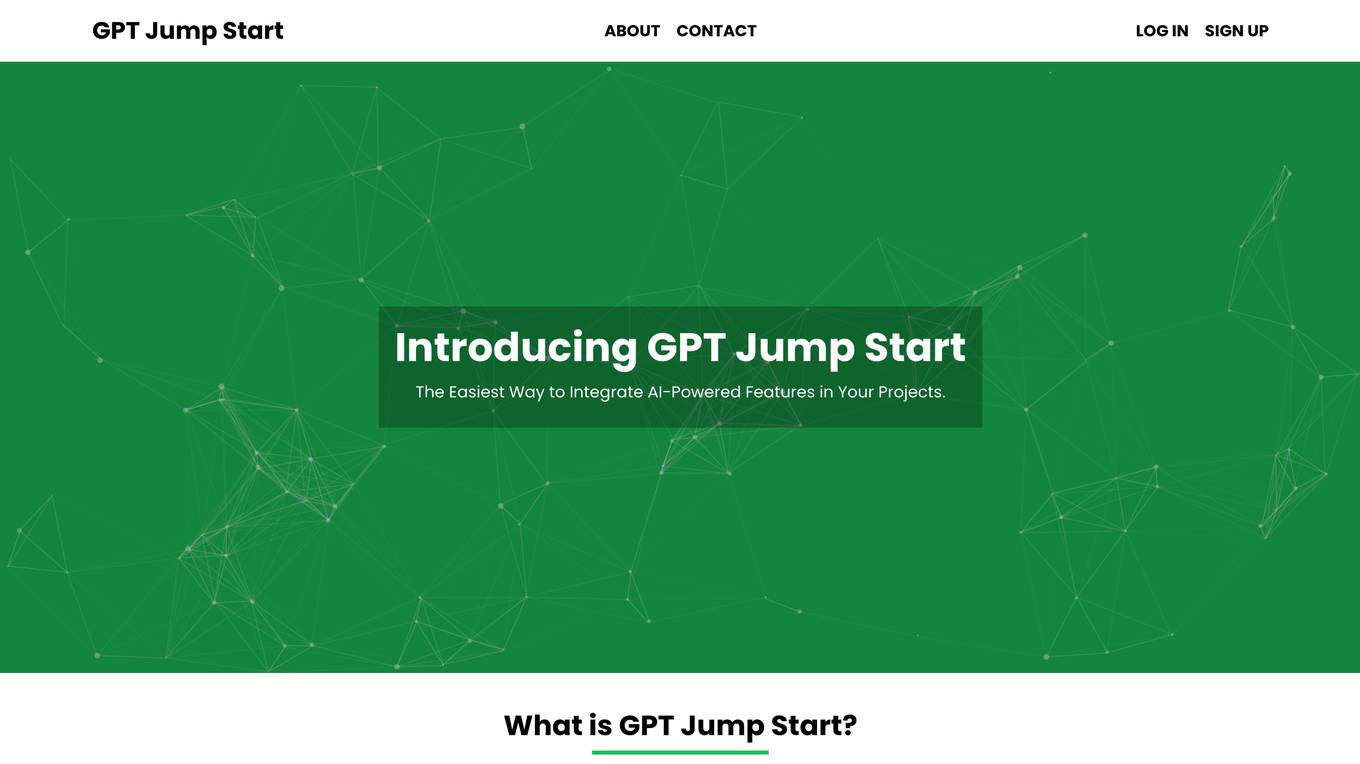
GPT Jump Start
GPT Jump Start is a versatile solution designed to incorporate AI features into your projects. It functions in two ways: As an API, it can be integrated with custom projects or existing solutions like Zapier and Pabbly. As a WordPress plugin, it assists in generating high-quality, engaging, and relevant content based on provided prompts.

EDEN AI by EVA AI
EDEN AI by EVA AI is a platform that allows users to create and connect with virtual AI partners. These partners are designed to listen, respond, and appreciate users, providing them with a safe and supportive space to explore their desires. EDEN AI's virtual partners are powered by advanced AI technology, which allows them to engage in natural and realistic conversations with users. They can also learn and adapt to users' preferences over time, providing them with a personalized and tailored experience.
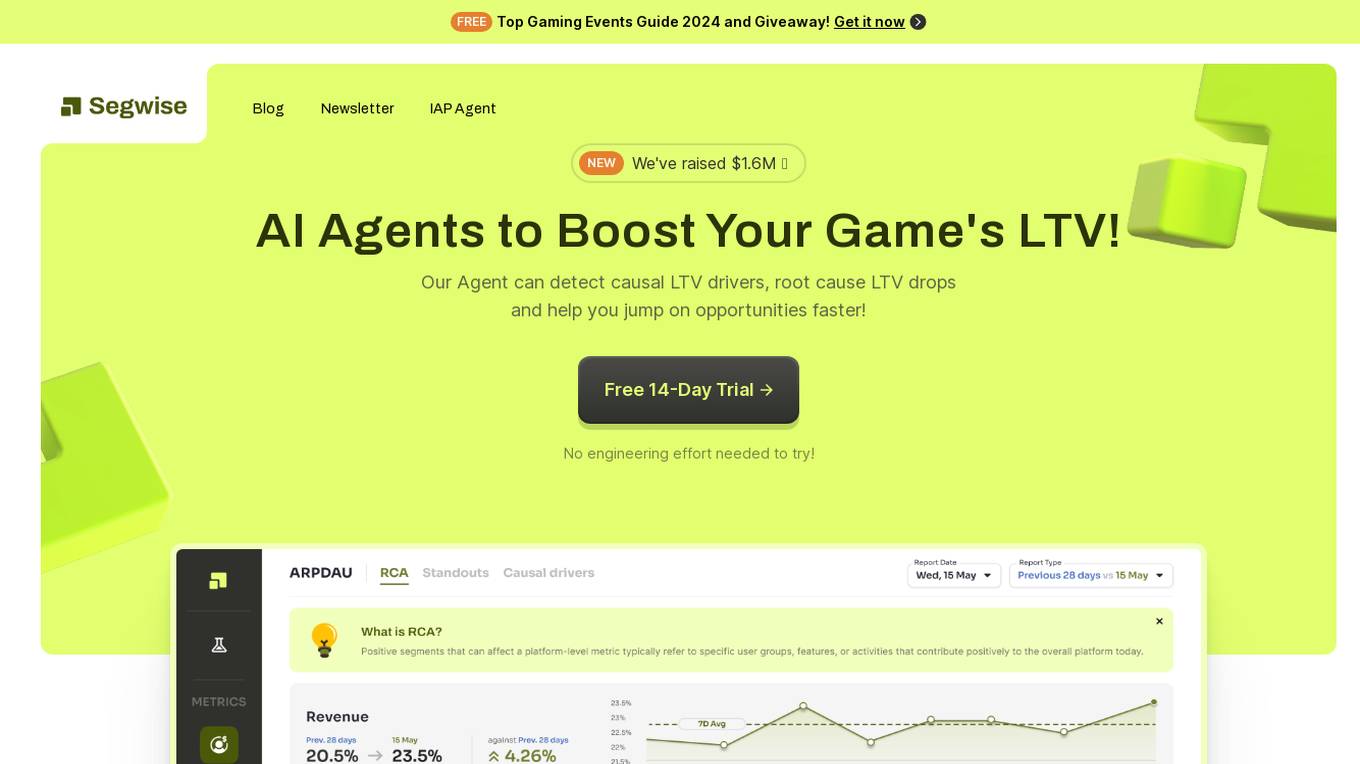
Segwise
Segwise is an AI tool designed to help game developers increase their game's Lifetime Value (LTV) by providing insights into player behavior and metrics. The tool uses AI agents to detect causal LTV drivers, root causes of LTV drops, and opportunities for growth. Segwise offers features such as running causal inference models on player data, hyper-segmenting player data, and providing instant answers to questions about LTV metrics. It also promises seamless integrations with gaming data sources and warehouses, ensuring data ownership and transparent pricing. The tool aims to simplify the process of improving LTV for game developers.

AutoPod
AutoPod is a suite of plug-ins for Adobe Premiere Pro that automates many of the time-consuming tasks involved in editing video podcasts and shows. With AutoPod, you can save hours of editing time each week, and get a finished edit that is ready to be published.

Peachly AI
Peachly AI is an all-in-one AI advertising solution that helps businesses create, target, and optimize their advertising campaigns. It uses a combination of AI technology and human expertise to ensure that campaigns are effective and error-free. Peachly AI is affordable and easy to use, with plans starting at just $8 per month.
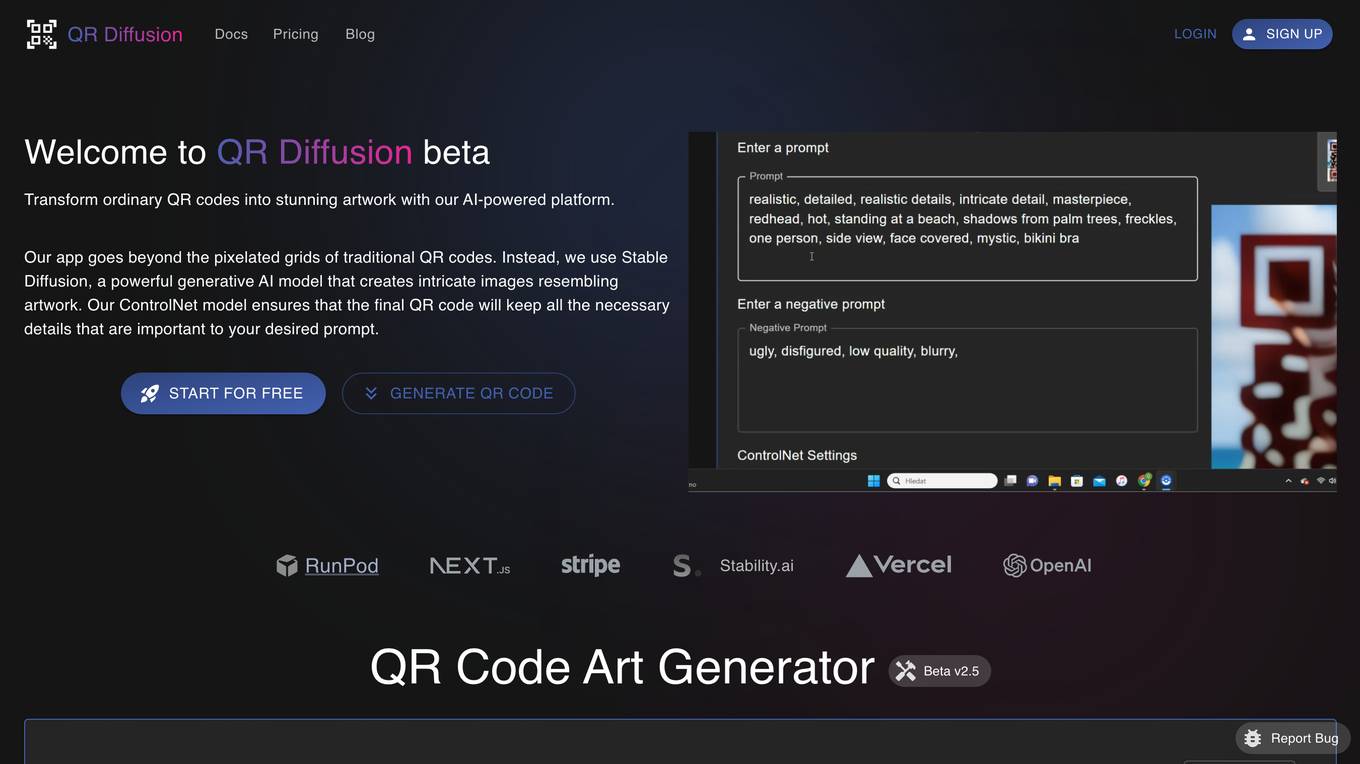
QR Diffusion
QR Diffusion is an AI-powered QR code art generator that allows users to transform their QR codes into visually stunning works of art in seconds. The website offers a variety of templates and customization options to create unique and eye-catching QR codes. With features like dynamic QR data, editable artwork templates, and analytics dashboard, QR Diffusion provides a user-friendly platform for generating artistic QR codes. Users can easily grab attention and increase scan rates with the help of this innovative tool.
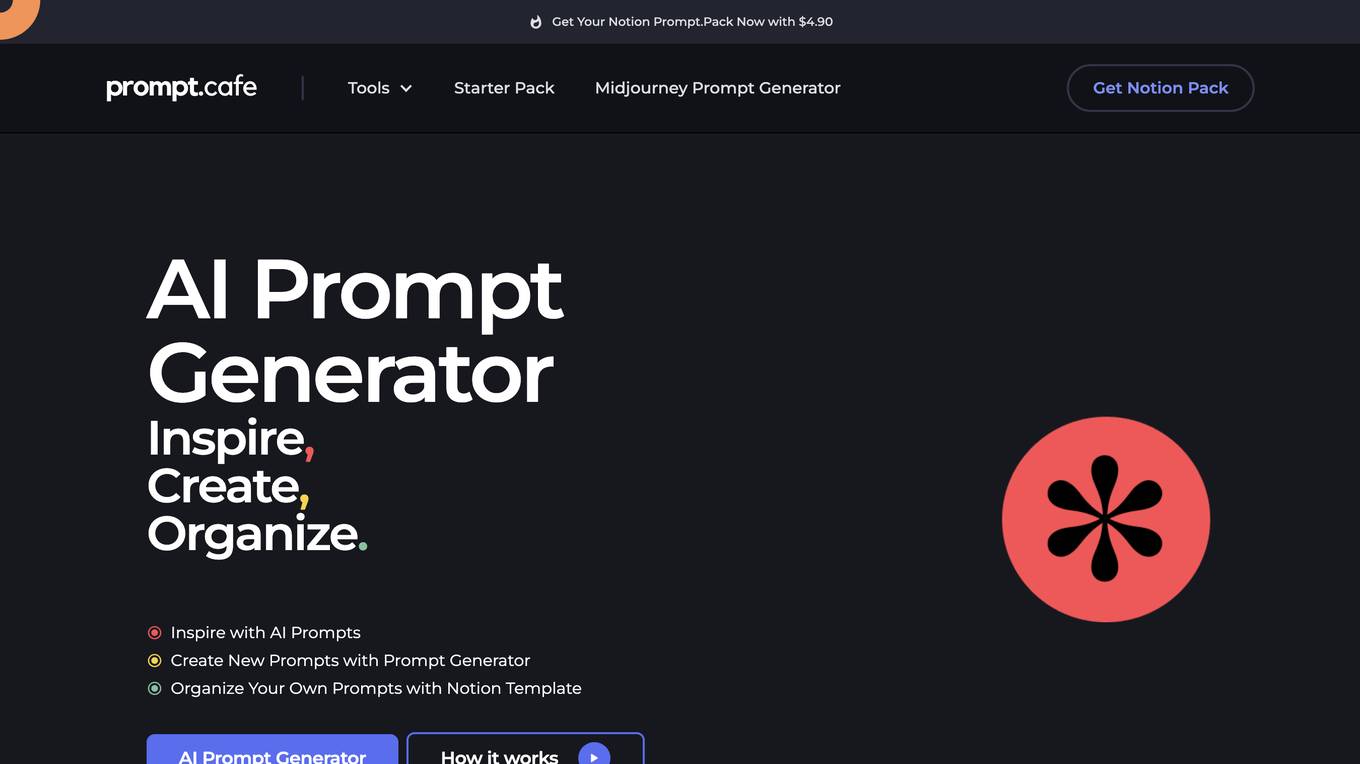
Prompt.Cafe
Prompt.Cafe is a website that provides AI-powered tools for content creation, marketing, and design. The website offers a variety of tools, including a monthly content calendar, an article-to-Twitter-thread converter, a marketing assets bundle, personalized Midjourney prompts, landing hero images, and a video-to-blog post converter. Prompt.Cafe also offers a Notion pack to help users organize their prompt library.
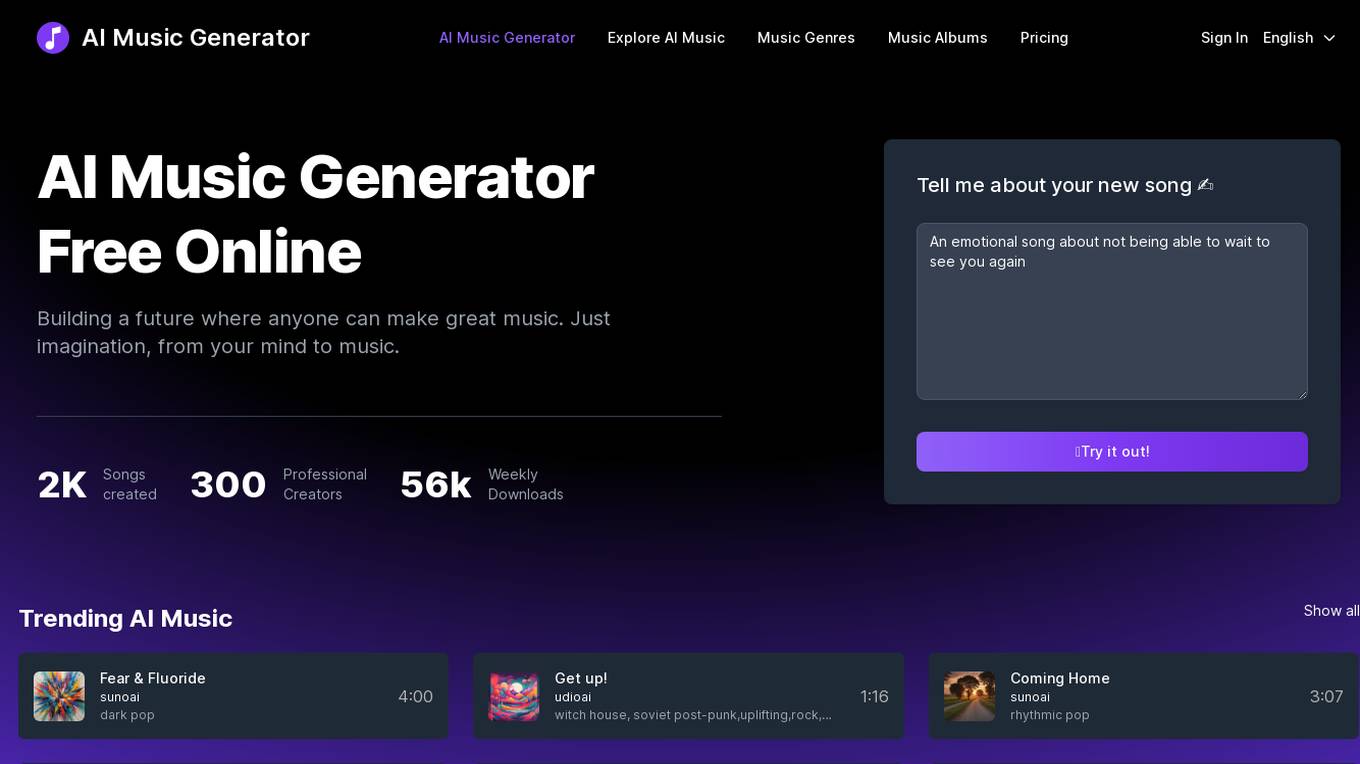
AI Music Generator
AI Music Generator is an advanced tool that allows users to create high-quality music compositions across various genres. It utilizes cutting-edge algorithms and machine learning techniques to analyze music patterns and styles, enabling users to generate personalized music aligned with their creative visions. The platform offers a free version with basic features and also provides advanced functionalities for commercial usage through subscription or payment. Users can customize instruments and sounds, share their creations on social media and music streaming services, and use AI-generated music for commercial purposes while complying with the platform's terms of use.

Windows Central
Windows Central is a website that provides news, reviews, and help on Windows 10, Windows 11, Xbox, and more. It covers a wide range of topics, including hardware, software, gaming, and accessories. The website also has a forum where users can ask questions and discuss topics related to Windows and Xbox.
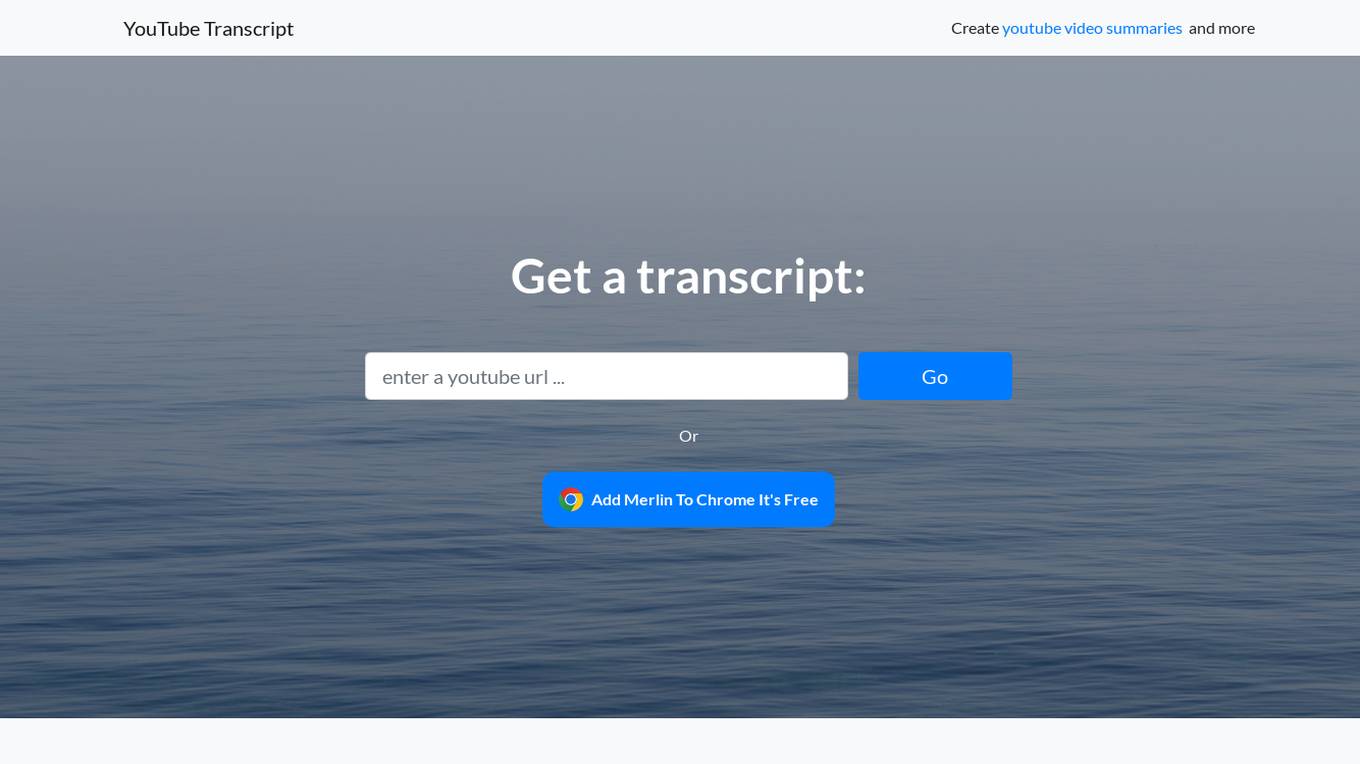
Merlin AI
Merlin AI is a YouTube transcript tool that allows users to create summaries of YouTube videos. It is easy to use and can be added to Chrome as an extension. Merlin AI is powered by an undocumented API and features the latest build.
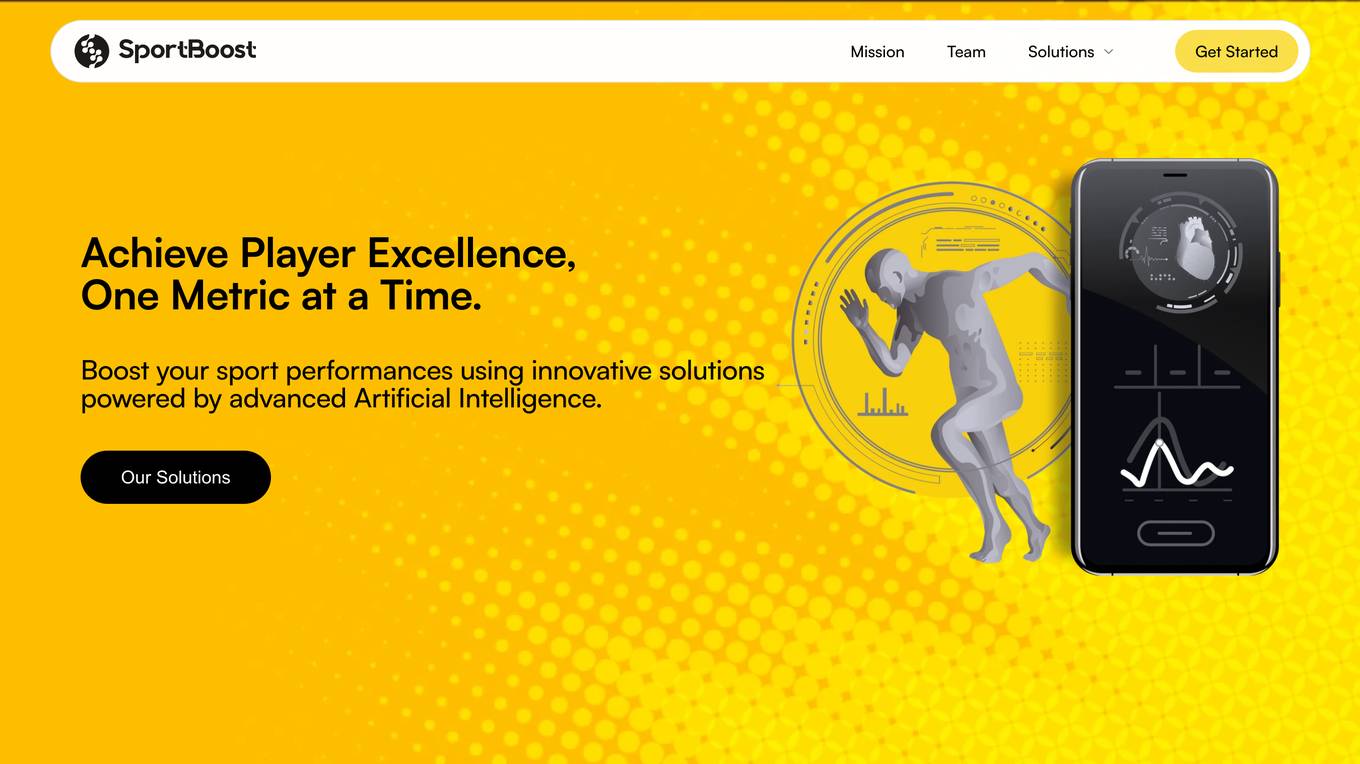
SportBoost AI
SportBoost AI is an AI-powered application designed to help athletes measure and improve their performance across various sports. The platform offers innovative solutions that leverage advanced Artificial Intelligence technology to track metrics such as ball speeds and jump performances. SportBoost AI aims to democratize access to performance data for athletes and coaches at all levels, from amateur to professional. The application is committed to scientific research and continuous innovation to enhance athletic excellence.
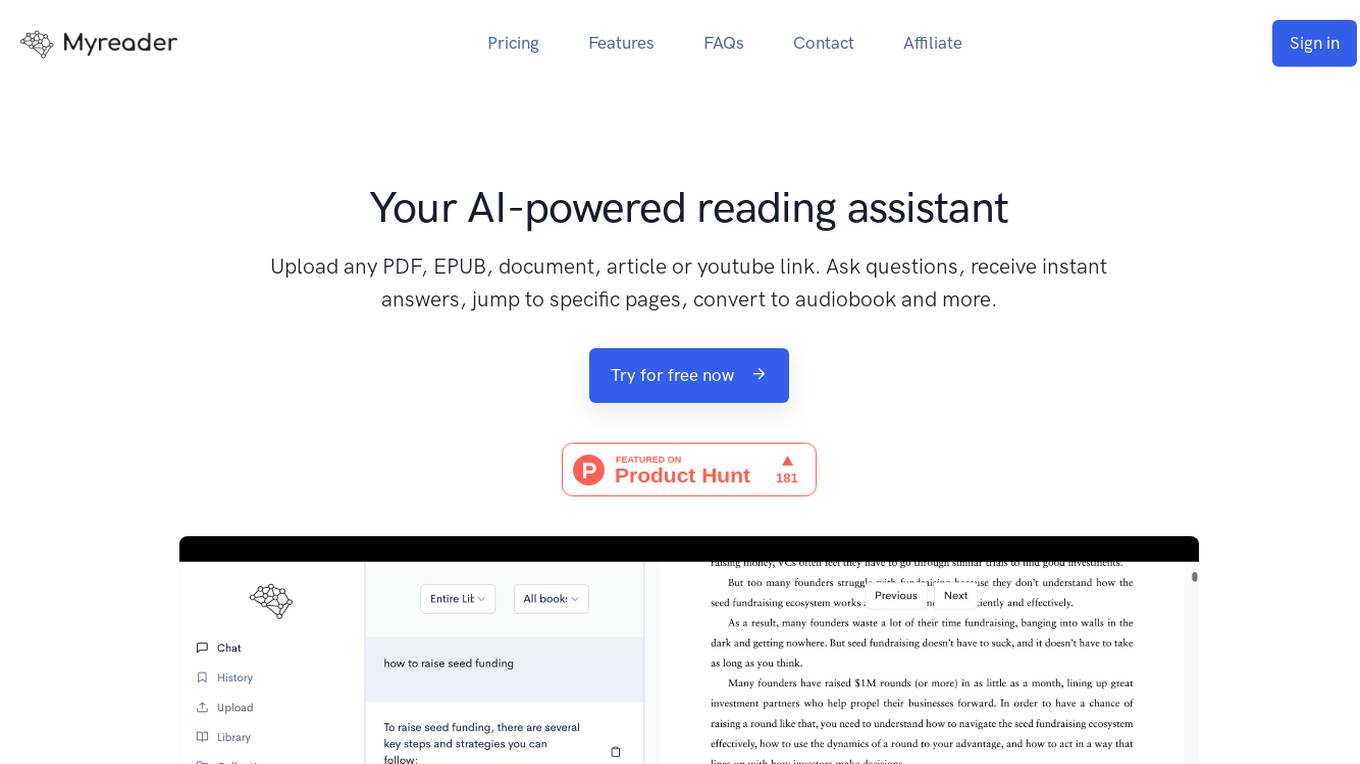
Myreader AI
Myreader AI is an AI-powered reading assistant that allows users to upload any PDF, EPUB, document, article, or YouTube link. Users can ask questions, receive instant answers, jump to specific pages, convert content to audiobooks, and more. The application leverages AI technology to save users time by summarizing and extracting key information from various types of content, making it easier for users to consume and interact with information. Myreader AI offers cloud storage, affordable pricing plans, accurate citations, text-to-speech functionality, and supports multiple languages.
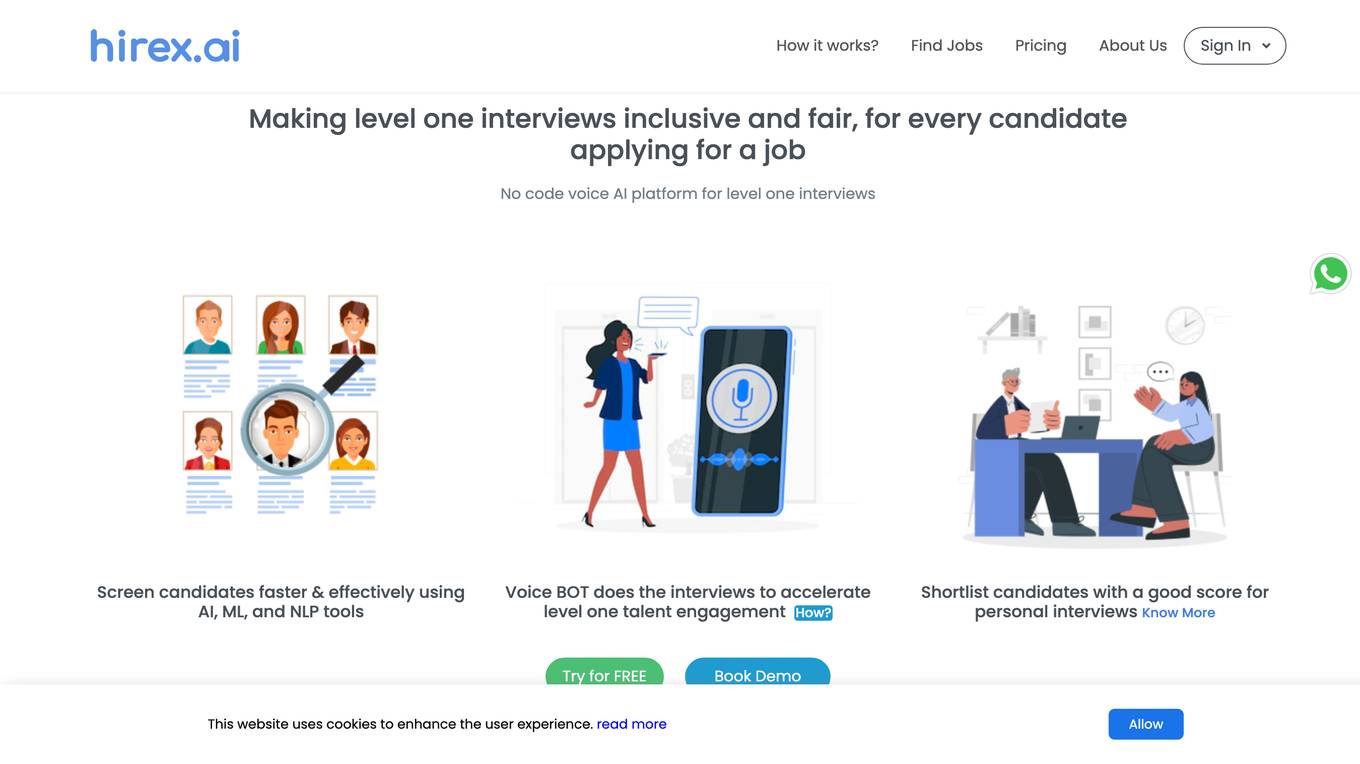
hirex.ai
hirex.ai is an AI-powered platform that revolutionizes the job interview process by making it open, fair, and accessible to all. The platform utilizes GenAI assistant to help candidates get interviewed instantly, jump the line to secure their dream job, and undergo a faster screening process. With no credit card required, users can register for free early access, upload their resumes, and post job offers. The platform aims to transform HR and talent acquisition by providing innovative solutions for both job seekers and employers.
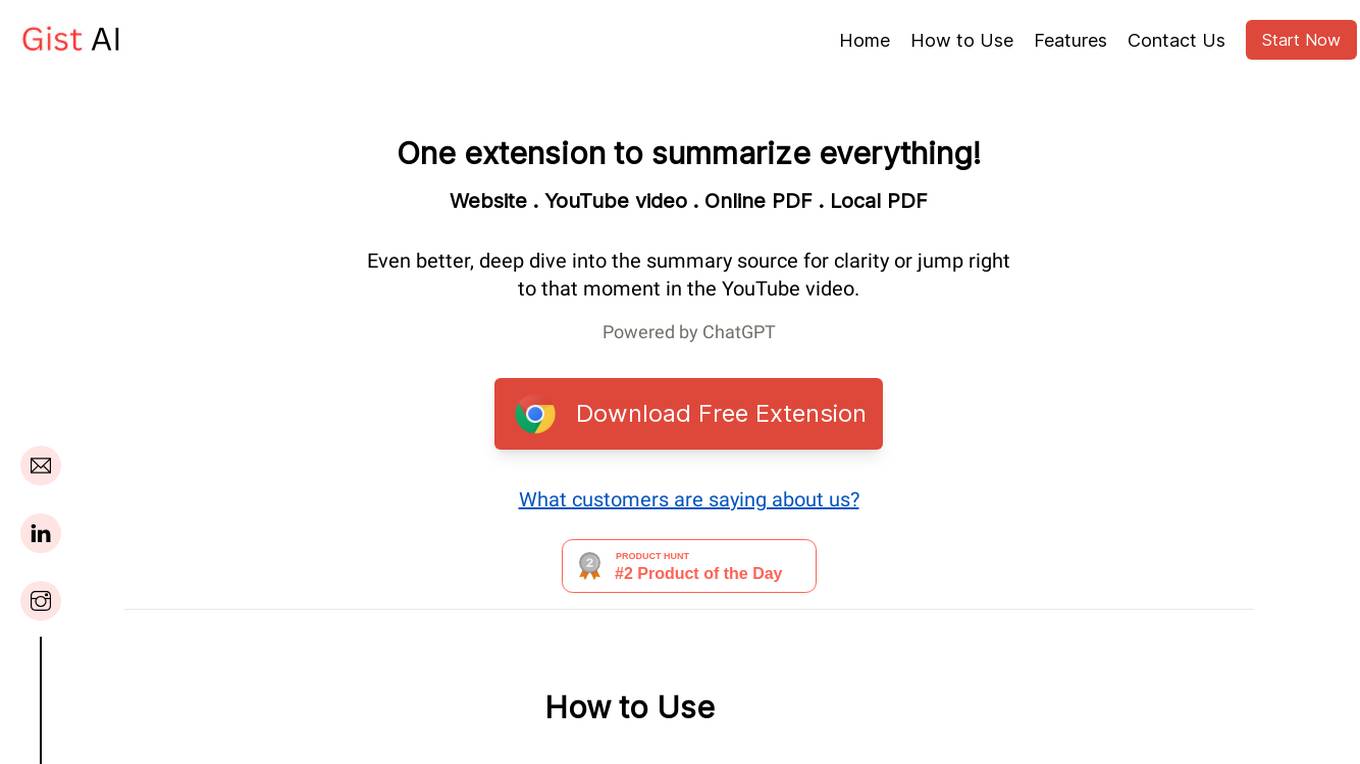
Gist AI
Gist AI is a free web, YouTube, and PDF summarizer powered by ChatGPT. It can instantly extract key points from long articles, YouTube videos, or PDFs in one click. Gist AI also allows users to deep dive into the summary source for clarity or jump right to that moment in the YouTube video. Additionally, it can summarize any PDF, including those found online and those saved on the user's device. Gist AI is completely free and has no restrictions on the length of the content.
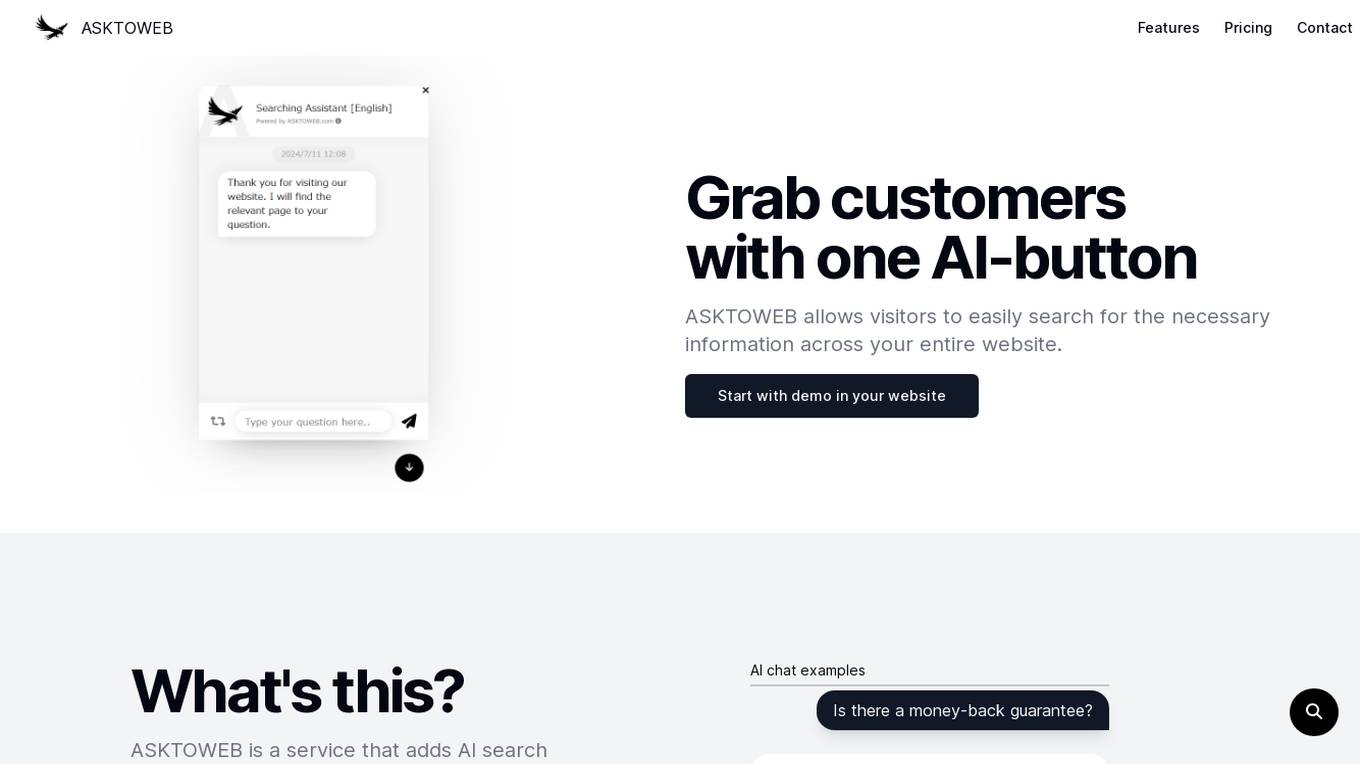
ASKTOWEB
ASKTOWEB is an AI-powered service that enhances websites by adding AI search buttons to SaaS landing pages, software documentation pages, and other websites. It allows visitors to easily search for information without needing specific keywords, making websites more user-friendly and useful. ASKTOWEB analyzes user questions to improve site content and discover customer needs. The service offers multi-model accuracy verification, direct reference jump links, multilingual chatbot support, effortless attachment with a single line of script, and a simple UI without annoying pop-ups. ASKTOWEB reduces the burden on customer support by acting as a buffer for inquiries about available information on the website.